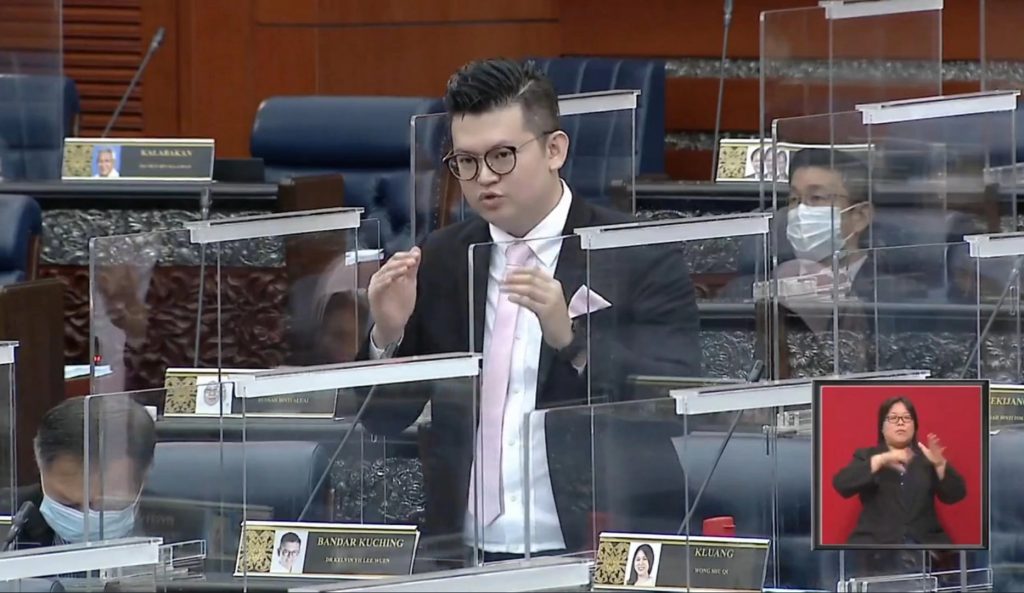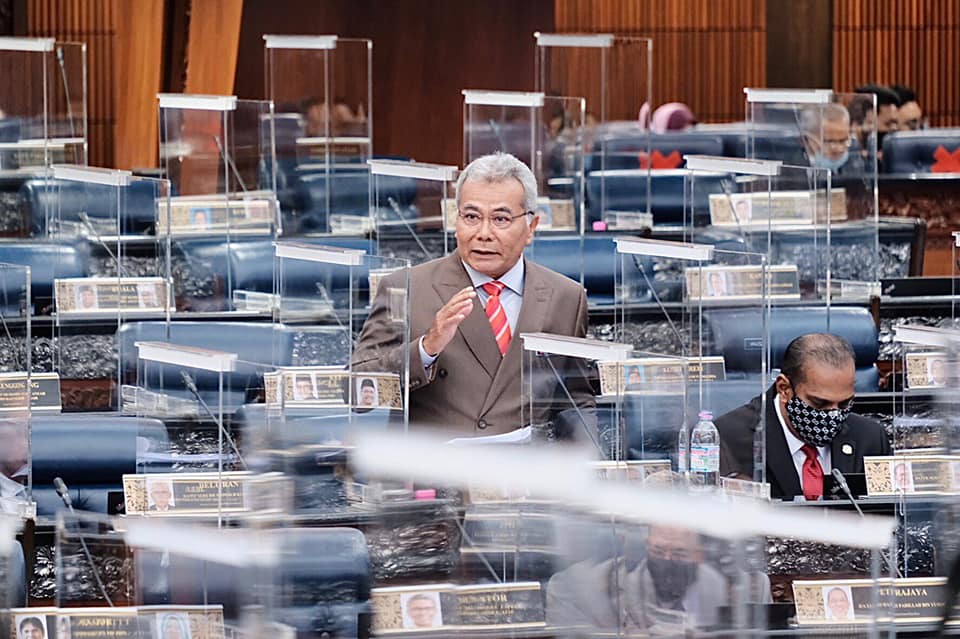KUALA LUMPUR, Nov 5 — Minister Redzuan Md Yusof has rejected Arau MP Shahidan Kassim’s proposal for all MPs to be isolated in a quarantine centre and transported to Parliament for daily sittings throughout the entire Dewan Rakyat meeting.
The Umno lawmaker also called for MPs and their staffers to be tested for Covid-19 every week, instead of every two weeks as decided by Dewan Rakyat Speaker Azhar Azizan Harun yesterday.
“Each week, Members of Parliament go back to their constituency, some of them go back to red zones. When they go back, they may bring the virus to Parliament later, or from Parliament, they may bring it back to their constituency,” Shahidan said during Question Time at the Dewan Rakyat today.
Redzuan, who is Minister in the Prime Minister’s Department in charge of special functions, said in response that Conditional Movement Control Orders (CMCO) and Enhanced Movement Control Orders (EMCO) have been implemented in certain places.
“If Arau enters a red zone and wants to leave it, we’ll make sure he is screened and quarantined. If he wants to enter Parliament, he has to do a swab test. Today, we decided each MP must be swabbed every two weeks,” said the Alor Gajah MP.
The Klang Valley comprising Selangor, Kuala Lumpur (where Parliament is located), and Putrajaya is currently under CMCO that is scheduled to end on November 9. Inter-district travel is generally prohibited for all Klang Valley residents.
Perlis, where Shahidan comes from, is a green zone, having reported zero new local Covid-19 cases in the past two weeks, according to the Ministry of Health’s 14-day moving chart.
Red zones, with 41 or more local Covid-19 cases reported in the past two weeks, are currently found in a majority of districts in Selangor, Kuala Lumpur, and Penang, as well as the state capitals of Negeri Sembilan (Seremban), Johor (Johor Baru), and Sarawak (Kuching). Most districts in Sabah, the current Covid-19 epicentre in the country, are red.

Bandar Kuching MP Dr Kelvin Yii (DAP) asked Redzuan if the government planned to replace Malaysia’s various lockdown orders — which are often announced last-minute with constantly changing guidelines throughout the period of implementation — with a tiered lockdown system, like that practiced in the UK.
“The system that we use — CMCO, EMCO, PKPP — is very confusing, there are no specific conditions for each level, but if we use a level system like in the UK, the general public can be prepared. Level 1, they know what they need to do, level 2, level 3, or Level 1a, Level 1b,” Dr Yii said.
“I suggest not just MPs, but each minister and deputy minister must get screened every week. No need RT-PCR, antigen RTK (rapid test kit is fine) — we can do it twice to reduce the risk of false negatives,” the DAP lawmaker added. “Each minister and deputy minister should do it every week, with results published to assuage public concern.”
The RT-PCR test is considered the gold standard test to diagnose current Covid-19 infection, but it is more expensive than antigen rapid tests and laboratory results can take 24 to 48 hours to come out, or longer if there is a backlog of samples amid an outbreak. Antigen RTK detects active Covid-19 infection and can be done at the point of care, with minutes-long turnaround time that do not need to have samples sent to laboratories.
Redzuan did not answer Dr Yii’s question on replacing Malaysia’s system of movement restrictions, but he said that MPs are required to get swabbed for Covid-19 every two weeks because the incubation period of the virus is 14 days.
“So there is no need to waste resources to do swabs every week,” the minister said.
“On the 13th day, before people can be released from quarantine, we will do another swab,” Redzuan added, when Dr Yii tried to explain what an incubation period means.
A negative Covid-19 test result does not mean that one is protected from the virus for two weeks. One can still get infected after taking the test, as a negative result only means that one did not have the virus at the time the test was taken.
People in quarantine are tested for a second time near the end of their 14-day isolation period because a first negative test result may not necessarily mean they are free from the virus after getting exposed to Covid-19 — such as being in close contact with a positive case — as the test may have been taken at a time when one’s viral load is low.
Hence, these people are put into fortnight-long isolation, despite a negative test result, to reduce the chances of them infecting other people during the 14-day incubation period of Covid-19, which is the time between the exposure to the virus and symptom onset (symptoms emerge within five to six days on average, but it can be as long as 14 days). People can still transmit Covid-19 even before they show symptoms.
If MPs are allowed to move freely between the capital city and other places in the Klang Valley or their constituencies throughout the Parliament meeting — instead of Shahidan’s suggestion of isolating federal lawmakers in a quarantine centre — a Covid-19 test every fortnight does not prevent lawmakers from getting infected in between the tests and spreading Covid-19 in the Parliament building or anywhere else.








